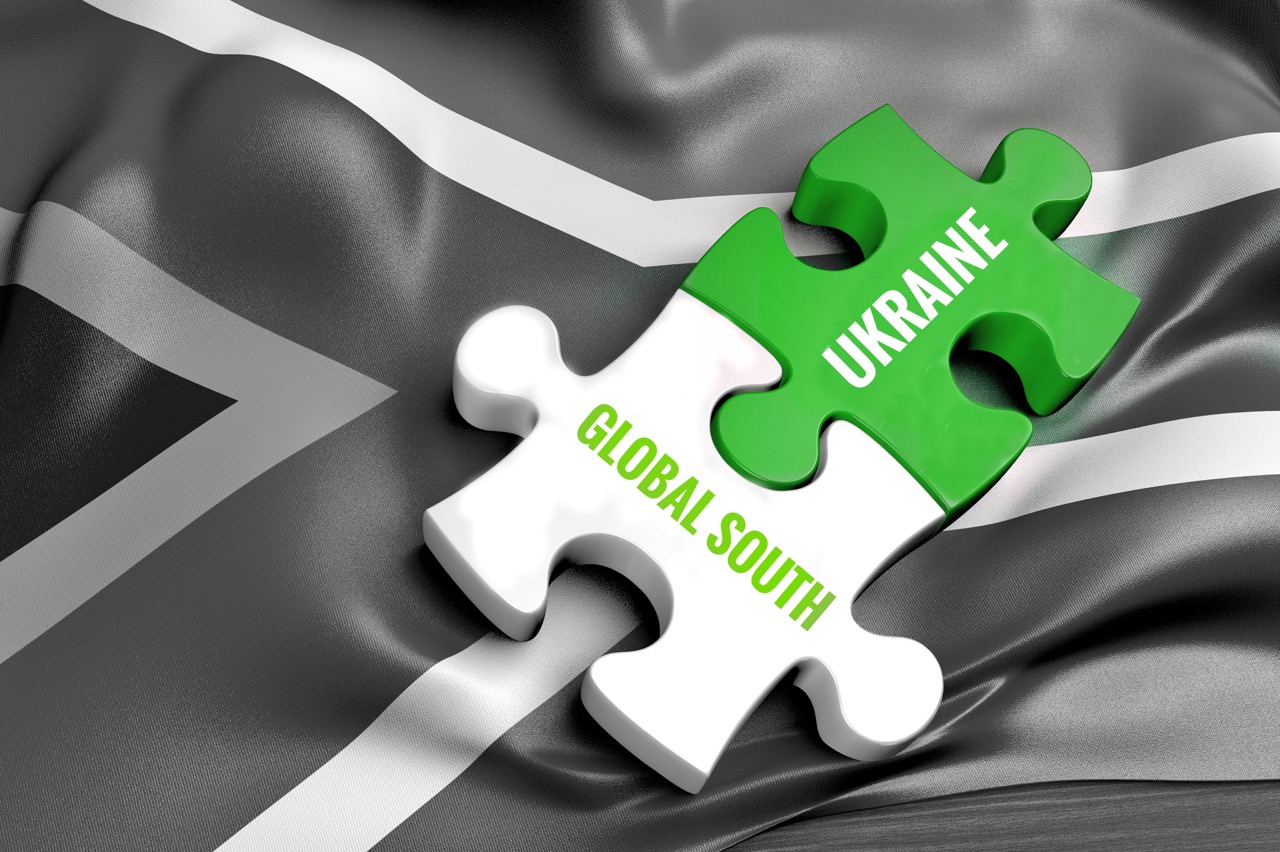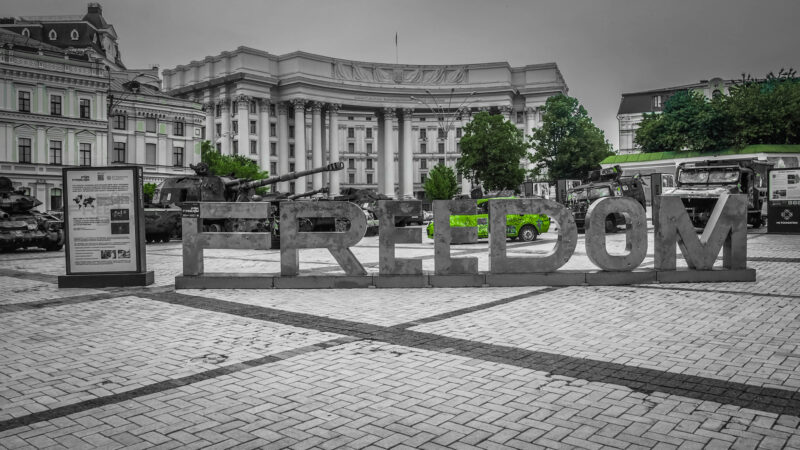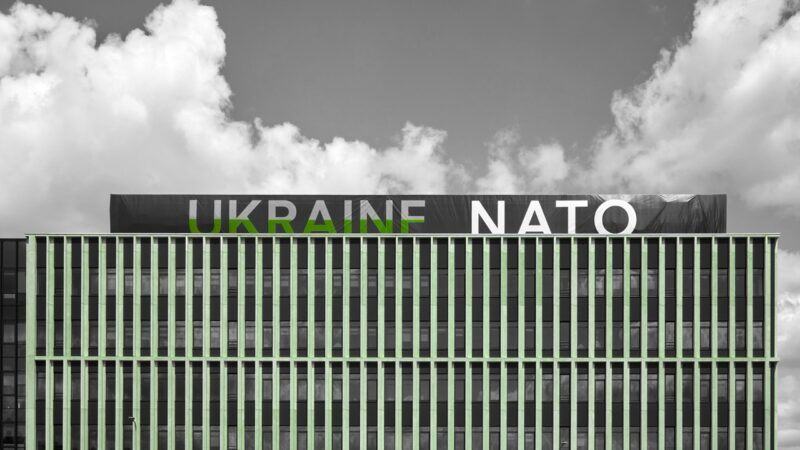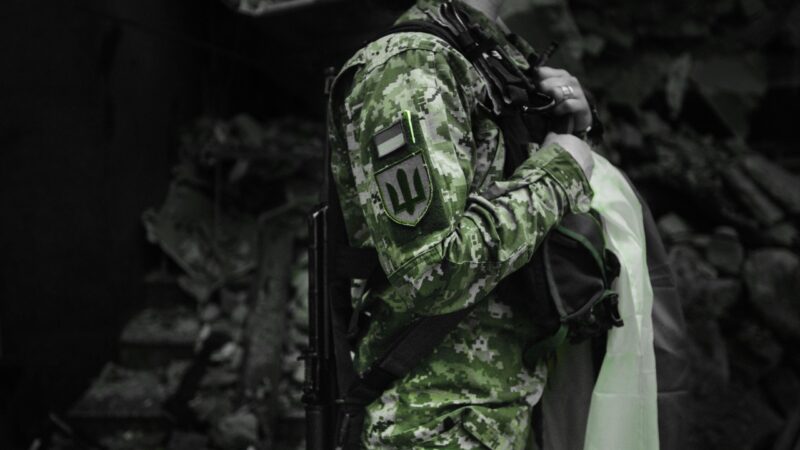Seeking support for Ukraine in the “Global South”: Past and future interactions

Traumatic events in international politics—such as war, a terrorist attack, or an environmental disaster—usually result in affective communities, or communities of suffering, uniting individuals who identify with the feelings of the victims at local, national, or even transnational levels. The experience of trauma can trigger the mobilization of past traumas and past experiences to create a sense of unity and “one-ness” even among individuals who have not experienced this trauma directly. Russia’s war against Ukraine has already created a transnational affective community uniting individuals from various countries, especially the Baltic states, where this war has become a vicarious war that is fought in various ways outside Ukraine. Although support for Ukraine is waning in some countries in the second half of 2023, significant numbers of people in Europe and North America continue to support Ukraine’s resistance against the genocidal war waged by Russia.
Lack of support for Ukraine’s fight in the Global South
The transnational affective community born out of the traumatic experience of the Russo-Ukrainian war is limited to certain geographical regions—mostly in parts of Europe and perhaps North America, where this war is often described as an unjust colonial war, given the Russian public’s support of Putin’s endeavours to exert control in its former imperial territories. Other regions, especially those including nations that have suffered from colonial oppression in the Global South, have not shown much support for Ukraine’s fight against Russia. South Africa is a case in point. When the full-scale invasion occurred in 2022, it voted together with sixteen other African countries to abstain from condemning Russia’s violation of Ukraine’s state sovereignty. Furthermore, in January 2023 South Africa hosted Russia’s Foreign Ministry Sergey Lavrov; he was warmly greeted in Pretoria by South Africa’s Foreign Minister Naledi Pandor, who described Russia as a “friend.” Later this year, South Africa held a naval drill with Russia and China, just before the one-year anniversary of Russia’s expedited invasion of Ukraine on 24 February. Despite pressure from the West, South Africa has refused to condemn Russia’s aggression against Ukraine, arguing that it favours a “peaceful” resolution of the conflict.
There are multiple reasons for this lack of support, including historical memory. The Soviet Union is remembered fondly by many in South Africa for its military and political support of the African National Congress (ANC), which fought against apartheid and is now a part of the government. Russia is seen as a successor to the Soviet Union and thus still as a friendly power. Communism (as an ideology) is also seen by many positively in South Africa. A memory wall in Pretoria’s Freedom Park commemorating those who fell in the cause of freedom in South Africa lists several organizations that describe themselves as “Communist.” On the other hand, NATO is seen as an extension of Western imperialism, and its supposed interest in “expanding” into Central and Eastern Europe (CEE) is treated as one of the reasons that Russia invaded Ukraine (ignoring the fact that many CEE states desired to join NATO, and also that NATO itself never uses the term “expansion,” only “enlargement”). Support for Ukraine and its NATO membership is viewed as support for US power projection globally.
For their part, since the disintegration of the Soviet Union CEE governments and societies, including Ukraine, have never been particularly interested in South Africa’s history or the traumatic experiences associated with apartheid. Their focus was on their own regions and on European security. Moreover, many issues that are considered of essential importance to South Africa (and other parts of the Global South)—such as the stark inequality between rich and poor and the high levels of poverty—have usually not been seen as priorities by Ukraine and its CEE allies, who are now trying to deal with the largest war in Europe since the end of World War II.
Current divisions and the promise of decolonization of international relations
The existing divisions into different communities of suffering appear to have been deepened by the most recent traumatic event with global repercussions—Hamas’ terrorist attack against Israel. Many countries in the Global South as well as CEE, including Ukraine, found themselves feeling the pain of the opposing sides. Horrified at the tactics used by Hamas, including rape and hostage taking, governments and societies in Ukraine, the Baltic states, and much of CEE have expressed emotional support for Israel. However, Russia, China, and many countries in the Global South have refused to condemn Hamas fully. For example, even though the President of South Africa (which has a sizable Jewish population) expressed official condolences to the people of Israel, at the same time he pledged solidarity with the Palestinians. Ten days after the attack on Israel by Hamas, South Africa’s Minister of International Relations and Cooperation called the leader of Hamas to “discuss getting humanitarian aid into Palestine.” One month later, in early November, South Africa described Israel’s actions in Gaza as “a genocide under the watch of the international community” and recalled its ambassadors from Israel.
Israel is seen as part of the “Global North,” and it has a staunch ally in the United States. It is likely that many societies in the Global South are refusing to express solidarity with Israel (and, by extension, with the US) because they feel that the USA and its allies in the “Global North” have ignored their pain and their needs for too long. The hegemony of the United States in the global world order is associated not with international law and justice but with double standards in international relations—and with the perpetuation of an unfair world order that goes back to the time of empires of the countries that currently enjoy the benefits of belonging to the “Global North.” Significantly, Western support for Israel’s retaliatory attack on Gaza has poisoned the efforts of the G-7 and the EU to build support in the Global South for condemnation of Russia’s war against Ukraine. In the words of one G-7 official, “They won’t ever listen to us again.”
Regrettably for Ukraine and other states in CEE, while the US and other rich countries in the “Global North” are indeed former empires that contributed to the unfairness of the current world order, they themselves were not colonial powers in the past. Furthermore, Ukraine and other CEE states share an important commonality with the smaller countries in the Global South. They are often seen and treated as “peripheral” actors by stronger and more powerful states. Thus, they have the same interest in pursuing international relations: they want to assert their subjectivity, keep their sovereignty, and make sure that their voices are heard in global politics. Simply put, one of the most important security priorities of the so-called “peripheral” actors is to be masters of their own fate. This should translate into support for a world order rooted in international law—specifically, support for sovereignty and human rights.
Assertion of subjectivity by “peripheral” actors is part of what has been described as the decolonization of international relations, which has been taking place both in theory and in practice for at least the last decade. (These initiatives should not be confused with Russia’s attempts to hijack the decolonization agenda, especially in Africa.) In the discipline of international relations, there is a growing realization that “peripheral actors” do have important roles to play in major transnational events, such as international crises, that previously were studied only as phenomena managed by hegemonic states. For example, by mounting a strong—and, to many, unexpected—resistance to Russia’s aggression in 2022, Ukraine asserted itself as an actor in global politics and empowered other CEE countries, including the Baltic states, to do the same. The countries in the Global South aspire to do so as well when asserting their priorities in international relations—even forging their own, “non-aligned” way in today’s global conflicts. In the context of Russia’s war against Ukraine, many countries in the Global South, such as Chile, have pursued a policy of “active non-alignment”—acting in defense of their national interests and not giving in to pressure from hegemonic powers. This obviates Russia’s continued attempts to present itself as a decolonizing power in the Global South.
Given this common interest in the decolonization of international relations, a dialogue between Ukraine, other CEE states, and other actors that are often seen as peripheral from the Global South appears to be possible—if not immediately, then maybe in the future, when the divisions heightened by the war in Gaza subside. A recent meeting between Ukraine’s President Zelensky and Argentina’s new President, Javier Milei, may result in a summit between Ukraine and Latin American countries. These actors retain memories associated with their respective traumas of colonialism and imperialism. Thus, it appears that articulation and acknowledgment of these memories may open lines of dialogue between these communities of suffering. Dialogues attempted in the past (prior to the war in Gaza) may also offer some ideas about the way forward.
Attempting a dialogue: Insights from the “Intersections of Oppression” Conference at the University of Pretoria
In October 2023 a conference took place in South Africa titled “Intersections of Oppression: Comparative Historical Analysis of Contemporary Challenges,” co-sponsored by the Embassies of the Czech Republic and of the Republic of Lithuania to the Republic of South Africa and hosted by the University of Pretoria. The conference represented an attempt to start a dialogue between CEE countries, including Ukraine, and the Global South (with a focus on South Africa).[1] Russia’s war against Ukraine was one of the main foci of the conference, which promoted dialogue about different forms of oppression that were experienced in the past by countries of the former Soviet bloc, the Global South in general, and South Africa in particular. In addition, the conference participants resolved to analyze Russia’s war against Ukraine “through the lens of colonialism, exploring how Russia’s aggression in Ukraine can be seen as a form of colonialism.”
The panel on different forms of oppression in South Africa, other African countries, and the Soviet Union pointed out some similar experiences in South Africa under apartheid and the Soviet Union, including forced labour, cultural persecution, and attempts at mental colonization. In South Africa under apartheid, black South Africans were forcibly removed by police officers from city centers to rural townships, stripping them of their property rights. In the Soviet Union under Stalin, so-called “enemies of the state” (anyone could be thus classified) were forcibly removed from their land and deported to areas far away in Siberia and other distant parts of the USSR. In addition to direct and violent oppression, such as forced labour and forced removals (practiced by both regimes), there was also what the participants of the panel described as “mental colonization.” In South Africa, non-whites were treated as inferior, and their humanity was degraded. Similar treatment was exercised against dissidents in the former Soviet Union. Although the Soviet Union liked to present itself (especially in Africa) as a champion of human rights and emancipation, it perpetrated serious human rights abuses at home. In the Soviet Union, nationalities policy included the demeaning treatment of various ethnicities and nationalities, and racism was common against certain ethnicities and nationalities, especially non-European ones.
However, the panel discussion also revealed how difficult it is to mobilize these commonalities in historical experience toward the pursuit of current politics and foreign policy during Russia’s war against Ukraine. There was a temptation to compare the scope of suffering (which region suffered more? whose suffering has already been acknowledged?). Furthermore, for many in South Africa and the Global South it remains extremely uncomfortable and next to impossible to think about the former Soviet Union and its successor Russia as a colonial power and oppressor, given its erstwhile support for the ANC (African National Congress).
This difficulty was especially pronounced during the second panel, “Russian Aggression against Ukraine as a Form of Colonialism.” None of the representatives from the current government in South Africa agreed to join the panel. David Monyae from the Centre for Africa-China Studies at the University of Johannesburg made a passionate argument that South Africa is “super-sensitive to any type of colonialism,” stemming from either East or West. He suggested that although it is undeniable that Russia violated Ukraine’s sovereignty, imperialism is still perpetuated on the African continent—not only by Russia (Wagner troops) but also by Western powers, including France and the US. NATO was portrayed as an instrument of colonial power, and it was described as being “as bad as Wagner” because of its intervention in Libya in 2011. It appears that in the discussions that took place during this panel, as long as Ukraine, the Baltic states, and other Central European states such as Czechia align themselves with NATO and the US (as well as other Western powers), they will effectively be seen as not condemning “Western imperialism” on the African continent—where Russia is still viewed as a legitimate actor, to be invited for conversations about the future of the war and the future of Ukraine. Such perceptions make future conversations even more difficult because the Baltic states and Ukraine are unlikely to “decouple” themselves from the West.
Future interactions with the Global South
The conference dialogue in Pretoria demonstrated that despite the similar experiences of historical trauma, it is extremely difficult to mobilize these experiences for urgent political needs, such as support for Ukraine in the ongoing war . At the same time, despite these difficulties it may be too early to completely give up on future dialogues between CEE and the Global South. It is important to try to engage the Global South directly in open dialogue and—as articulated by Rasa Jankauskaitė, Ambassador of the Republic of Lithuania to the Republic of South Africa—to exhort them to start listening to each other. Abuses of human rights, such as forced labour in the Gulag or mass deportations, as well as the widespread “mental colonization” of non-Russian ethnicities in the former Soviet Union is a story that still has not been fully told (nor fully heard) in countries such as South Africa and the rest of the Global South.
At the same time, as articulated by Olga Tokariuk, a Ukrainian journalist, it is important to acknowledge that countries of both CEE and the Global South have the right to tell their stories and assert their own agency independently, free of the “colonial lens.” This right goes to the heart of what the “decolonization of international relations” movement is all about: a willingness to listen to the stories of the Global South, respecting the different views of “the West” that are held by countries of CEE and the Global South and understanding that differences of interpretation of the Cold War may have to become integral parts of future dialogues.
To continue these conversations, it is important to look for opportunities to support the causes that are important for the Global South—such as fighting against poverty or global climate change. During the conference in Pretoria Liubov Abravitova, Ukraine’s Ambassador to South Africa, mentioned that Ukraine supported South Africa’s bid to join the UN Security Council; such initiatives are appreciated and supported by the Global South. It is likely that the global influence and importance of the Global South will increasingly matter in the future; thus, it is imperative for CEE countries, including Ukraine, to think about ways to continue such conversations, despite the ongoing war in Gaza.
[1] A recording of the opening remarks to thе related conference is available at https://www.youtube.com/watch?v=jHYIMhraOs4&list=PLADFbLfvk9DVHkAaGtaXu1CTT4w7CDir3





